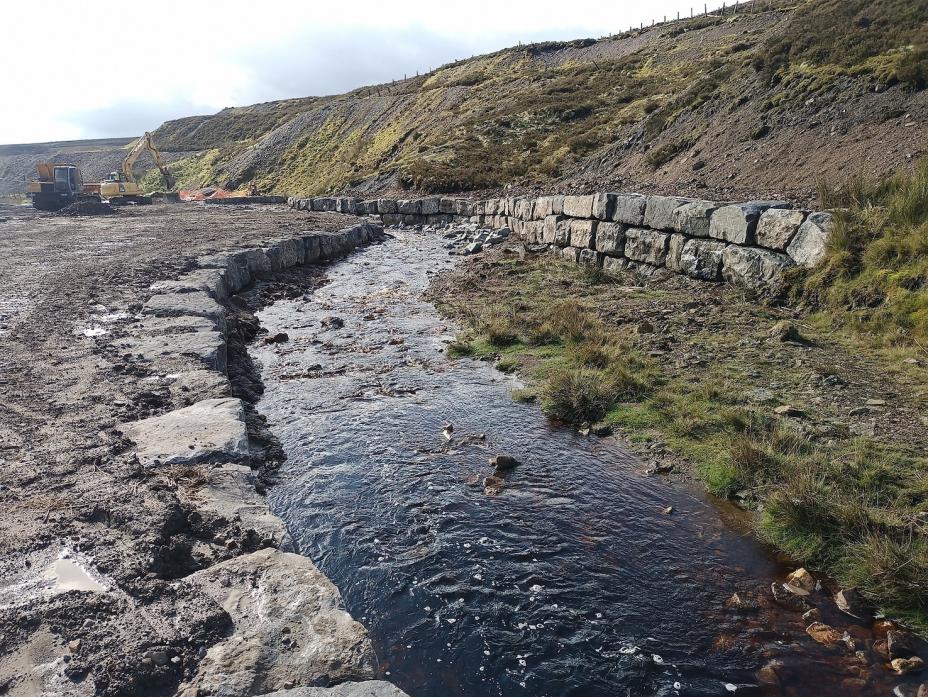
THE first phase of two projects to reduce metal pollution from abandoned lead and zinc mines near Middleton-in-Teesdale has been completed.
The new measures, which include building 300m of new riverbank walls and sowing an array of grass and plant species on metal-contaminated land, will limit metals being washed out of mine waste material and polluting Little Eggleshope and Great Eggleshope becks, both tributaries of the River Tees.
Environment Agency experts say abandoned mines and the waste they produce can pollute rivers and harm aquatic life.
Cash totalling £268,000 has come from the Water and Abandoned Metal Mines (WAMM) programme and The National Lottery Heritage Fund to cover the costs.
At the former Wire Gill Mine, on Great Eggleshope, trial plots of vegetation and grassland have been planted across 0.75 hectares of highly metal-contaminated ore processing waste.
This allows vegetation to grow over bare mine waste material, reducing metals being washed away, creating new grassland habitats and capturing carbon dioxide in the soil.
Through these trial plots, the project team has sown 25 grass, flower and herb species alongside a range of different materials such as compost, biochar and rock dust to help the plants grow and withstand different weather conditions.
At the former California Mine, on Little Eggleshope, 900 tonnes of local stone has been used to build up 300 metres of riverbank walls to prevent the beck from eroding highly metal-contaminated mine waste material.
In addition, 100 metres of drains have been installed to divert rainfall and river water away from the waste material.
This will reduce the amount of metals like cadmium, lead and zinc that are being washed out of the mine waste material.
Dr Hugh Potter, the Environment Agency’s Water and Abandoned Metal Mine lead, said: “These innovative projects in the North Pennines are already boosting biodiversity and will help to improve water quality in rivers that have been polluted since the 19th century.”
Tenant farmer Richard Wearmouth, who has been involved in the project, added: “I have enjoyed working alongside the various organisations.
“We started with barren ground and now have natural vegetation coming through.”





